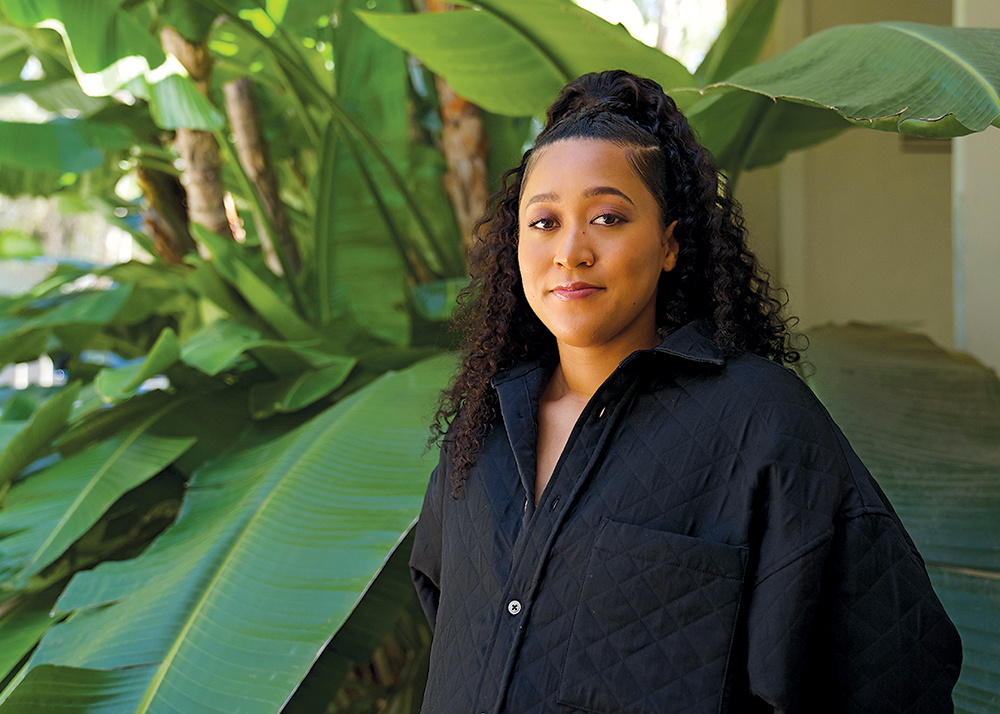Tennis legend Billie Jean King interviews seven famed female athletes in probing new documentary Groundbreakers
In a two-hour documentary, sports icon and equality champion Billie Jean King invites seven other legendary athletes to discuss how their own struggles and achievements shaped their sport. Flag football player Diana Flores, basketball legend Nancy Lieberman, Olympic gold snowboarder Chloe Kim, soccer star and World Cup winner Julie Foudy, Olympic gold gymnast Suni Lee, track and field world record holder Jackie Joyner-Kersee and four-time tennis Grand Slam winner Naomi Osaka sit down to share how they tackled issues such as equitable pay and treatment, sexist policies and mental health.
These iconic athletes showcase the perseverance, pain and progress of women who dared to challenge the system and defy conventional norms. But while battles have been won — this year marks the 50th anniversary of equal prize money at the U.S. Open — the war is still ongoing. King brings up the victory of the Spanish soccer team, last summer at the Women’s World Cup, which was overshadowed by president of the Royal Spanish Football Federation (RFEF) Luis Rubiales’ forcibly kissing forward Jenni Hermoso during the medal presentation.

“What I don’t like is when the women win and we don’t get the headlines. That gets me absolutely crazy,” says King. “But I do think it’s good to bring this abuse to light. The women stuck together and look what they were able to do because of that.” In this particular case, the team’s actions led to Rubiales resigning, but these fights do not always end in victory. “This isn’t just in Spain. We’ve seen this all over the world,” adds Foudy. “Sadly, it still falls on the players to be the voice and we see over and over again that they get punished, they get cut from teams, they get discarded as players. They’re giving up their careers to try and enact change.”
Foudy is in no way unfamiliar with unifying a team for a common goal. She recalls going to King for advice when she and her fellow teammates were seeking to renegotiate the contract that paid them $10 a day. “I was in my mid-20s. I’d been on the national team for about eight years, and we were getting frustrated,” she says. “We kept asking our federation for help, saying, ‘We’re not treated well. We’re all graduating college. How are we going to make a living?’ ” King told Foudy that she had the power to change things. “When you trace the thread back from our current national team getting equal pay, it goes back to Billie saying, ‘What are you doing about it?’ Because we were supposed to sign another $10-a-day contract, and I said to the team, ‘I was just with Billie Jean King, she said we’re not signing this, and this is why.’ That was [for] equitable treatment and pay. Now, of course, it’s equal pay that the current team [has] got.”

King may be both a living legend and an activist today, but the journey to success for the tennis player was a winding road. “Most people thought I was crazy. They looked at me like, ‘Yeah, right. You want to be No. 1, sure.’ I could tell they were thinking ‘You got no chance, girl,’ ” says King, adding that she worked two jobs and went to a state university because she couldn’t get a scholarship, whereas male players had full rides to college. But, even in her youth, she gave off an air of confidence. “I had all the players come to me when they had a problem,” she says. “I was the youngest one on the team and every single one came to me. I had no idea what I was doing.”
That inherent strength served King when, in 1981 she was outed, and lost all her endorsements overnight. “Today, if a sports person comes out, usually the president of the United States calls them, they make more money, they get more endorsements. It’s fantastic,” says King. “In the ’70s I was told if I talked about it, we wouldn’t have a tour. The tour is more important than one person. That was tough. But I’m big on telling the truth.” At the time, both King’s publicist and lawyer wanted her to deny the allegations, but King was adamant that she would not lie, despite the brutal consequences. “I just said, I’m going to start over but now I can start living my truth,” says King. “So, I started over.”
After years of advocating for equal treatment, King feels like women’s sports is finally reaching a tipping point, where voices are not just heard, they drive real change. “Our job, as an older generation, is to help the younger generation be our leaders,” says the 79-year-old. “This is what I’ve waited for my whole life and I’m glad I’m still alive to see this day.”
Groundbreakers airs Tuesday, November 21 on KCTS
